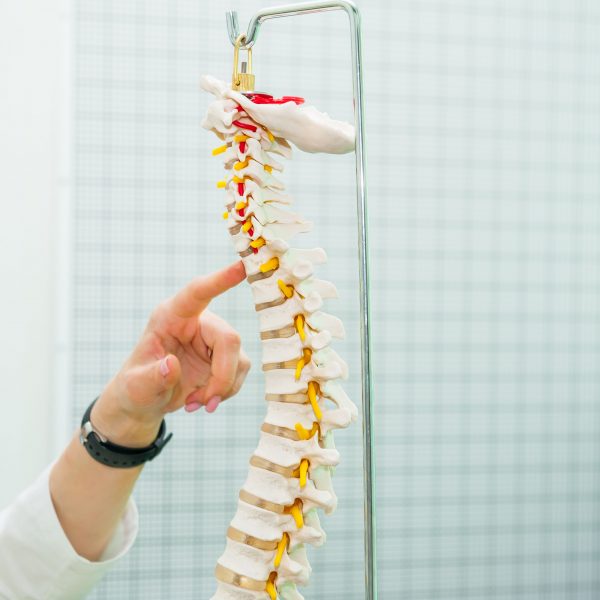Saliva plays a vital role in our oral health, helping to neutralize acids that can damage teeth, aiding digestion, and keeping the mouth clean. However, when saliva isn’t produced correctly, it can cause dry mouth syndrome. Let’s look at the causes of dry mouth syndrome and how to treat it.
What is Dry Mouth Syndrome?
Dry mouth syndrome (also known as xerostomia) is a medical condition in which your mouth does not produce enough saliva. Saliva plays a vital role in keeping your mouth healthy. When there isn’t enough saliva, it can lead to several uncomfortable symptoms such as bad breath, difficulty swallowing and eating, and an increased risk of infection.
Causes of Dry Mouth Syndrome
There are multiple causes for dry mouth syndrome. Here are the four most common.
- Dehydration– Saliva is made of water, and when a person is dehydrated, they are not producing enough to keep the mouth moist.
- Medication– Certain medications can inhibit saliva production, including those that treat depression, anxiety, and hypertension.
- Disease– Some health conditions lead to dry mouth syndrome and other oral health problems like tooth decay and gum disease.
- Smoking– Smoking is another cause of dry mouth syndrome, as it both dries out the saliva and can damage the tissues in the mouth.
Complications with Dry Mouth Syndrome
Dry mouth syndrome can lead to several other health complications if left untreated. Here are three of the most common complications of this syndrome:
Periodontitis
The gums are an essential part of the body that helps remove bacteria and keep the teeth healthy. However, when there isn’t enough saliva to wash away harmful bacteria, it can lead to periodontitis, a severe condition that affects both the gums and bones supporting the teeth.
Tooth Decay
Saliva provides natural enzymes that help protect your teeth from decay caused by harmful bacteria. Without enough saliva, your risk of getting tooth decay increases significantly.
Oral Infections

Without adequate saliva production, it becomes much easier for oral infections like thrush to develop. Thrush is an infection caused by candida fungus that can affect the tongue and other tissues in the mouth. It is also more difficult for wounds and sores to heal when insufficient saliva is in the mouth.
Treatment for Dry Mouth Syndrome
There are various ways to treat dry mouth syndrome, depending on the cause of your condition. Here are a few common treatments:
Quit Smoking
One of the leading causes of dry mouth syndrome is nicotine from smoking cigarettes and vaping. The nicotine acts as a drying agent on the mucous membranes in the mouth, which can decrease saliva production. Quitting smoking or vaping is one of the first steps you should take to improve your dry mouth symptoms. If you’re struggling with quitting smoking, here are some options that can help:
- Nicotine Replacement Products– There are now several over-the-counter products that can help you curb your cravings as you work to quit smoking. These products contain small amounts of nicotine to help reduce withdrawal symptoms and moisten your mouth.
- Counseling or Medication – If you are having trouble quitting, speaking with a counselor or mental health professional may be beneficial. Medications from your doctor can also help with tobacco addiction and improve the symptoms of dry mouth syndrome.
Drink More Water
Dehydration is one of the most common causes of dry mouth syndrome, so simply increasing your water intake will often ease some symptoms. You should aim for eight 8 oz glasses per day to stay properly hydrated and prevent dryness in the mouth.
There are other ways you can get hydrated. You can drink soups or other beverages that contain electrolytes or eat fruits and vegetables with a high water content.
Chew Gum or Suck on Hard Candies
Chewing gum or sucking on hard candies can help stimulate saliva production and hydrate the mouth. The sugar in these products also provides an additional boost of energy and nutrition. However, be sure to choose sugar-free products since sugar can contribute to other health problems such as tooth decay and diabetes.
Use Artificial Saliva Products
Artificial saliva products such as sprays, gels, and tablets are designed to treat dry mouth syndrome. These products contain ingredients that help soothe the throat and increase saliva production in the mouth. Just read labels carefully before using any artificial saliva product since some may contain ingredients that could irritate sensitive throats or cause allergic reactions.
Visit a Dental Professional
If none of these things work, it might be time to visit a dental professional. Your local dental clinic can help determine the cause of your dry mouth and recommend additional treatment options if needed. They may prescribe medications, suggest surgery, or refer you to another specialist who can offer more advanced care.
A dry mouth is a condition that can significantly impact your quality of life. If you are experiencing dry mouth symptoms, speak with your doctor or dentist to better understand the treatment options available for you. They can create a plan to help you feel better and manage your symptoms over the long term.






